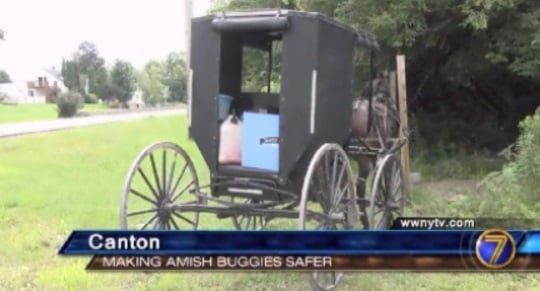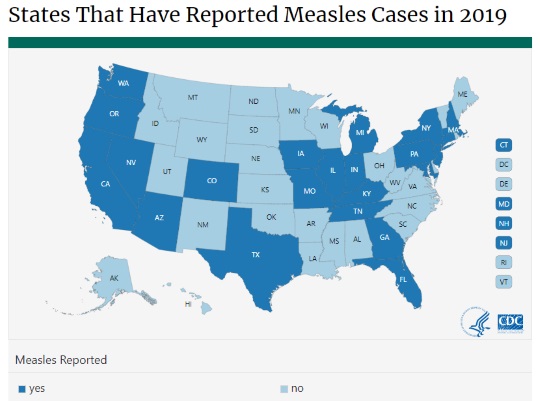Amish Among Investors Who Lost $3.9M In Alleged Scam
News came last week of another financial scandal involving Amish investors as victims.
According to the federal lawsuit, Earl D. Miller began recruiting investors in 2008 to join a number of investment vehicles, despite having no experience in fund management.
The Goshen, Indiana resident is accused of “misrepresentations that Miller raised at least $3.9 million from at least 70 investors, but repeatedly lied to prospective investors.”
According to the complaint, here is how Miller operated:
“Miller encouraged people who trusted him to invest their money with 5 Star Commercial and 5 Star Capital,” the complaint reads. “Many of Miller’s investors are financial novices. In addition, Miller has been very successful at gaining the trust of — and recruiting investors from — the local Amish community. He advertised his investment services in local Amish newspapers, has touted his Amish heritage, and has arranged community meetings with local Amish families to discuss his investment ‘opportunities.’ Miller convinced some of his victims to invest their retirement funds or a majority of their life savings with those entities.”
In exchange for their investments, investors were given a promissory note with a fixed-rate of return ranging from 8 percent to 12 percent per year, far in excess of then-prevailing rates fro bank deposits, CDs and other fixed-return investments, according to the complaint.
Exploiting Trust For Profit
This is not the first time Amish and other Plain People have fallen victim to investment crimes.
Monroe Beachy is the first name which comes to mind. Beachy is a member of the Holmes County, Ohio Amish community who managed a fund with around 3,000 investors and which lost around $17 million. Beachy was sentenced in 2012 to 6 years in prison for fraud.
Other similar recent stories include the Pigeon King scandal and the John Sensenig case which affected many Plain Mennonites.
“Affinity fraud” is a term often used in these cases. It refers to a member of a community taking advantage of others in the community by exploiting strong bonds of trust.
Groups like the Amish are particularly susceptible to this. It sounds like Miller made good use of his Amish background to gain trust of those within the community.
It’s too bad we’re hearing about another one of these, though since this scheme began well before the Beachy story came to light, any lessons from that tale were probably not absorbed by the investors in this case.
But it also makes you wonder, will there be more stories like this to come?






Erik, As I read this article, my mind wandered to thinking about the family of Mr. Miller. How will his family be treated within their Amish community? Will they be treated as if they also participated in this crime, or will they be thought of as victims? I feel certain the those people who were taken advantage of, will be helped by the community, but I don’t know about Mr. Miller’s family.
Well, that’s a good question Harriet. To be clear, according to how I read this, Earl D. Miller is not Amish but used his “Amish heritage” to gain trust.
But that may very well mean he has relatives still within the Amish. I would expect, and like to think that they would not be treated differently simply due to the actions of a relative.
You are right, of course, Erik. I went to the Goshen newspaper and read the whole article and it is obvious that he is not Amish. If he is, since he is a realtor, it would be kind of fun watching him take people to view houses in a horse and buggy!! Ha!!
Erik Wesner Please email me thanks no scammer here
I need to speak to you , Private thanks
Please email me. need to speak to you in private thanks
Elliott6881@sbcglobal.net
Sad news
Another sad aspect of this apart from the obvious heartbreak of loosing the accumulation of a lifetime among people whose entire life often consists of hard work is the fact that many Amish and Mennonites are afraid of investing in ethical, legitimate, sound financial holdings. Some whom I know just save and save not understanding that inflation is eating up their savings. Once again we look to the Word of God, “Lay not up for yourselves treasures upon earth, where moth and rust doth corrupt, and where thieves break through and steal: but lay up for yourselves treasures in heaven, where neither moth nor rust doth corrupt, and where thieves do not break through nor steal: for where your treasure is, there will your heart be also.” Matthew 6:19-21
6 years...
So, all that work, all that sweat, and toil, and sacrifice, day in and day out for lifetimes(which is what the Amish do better than anyone)but also all the future suffering, not just for a few, but for a whole community – is only worth 6 years in prison? I really don’t understand why the sentences for white collar crime are so lenient. Who made these laws and who made these sentences? – oh yeah, the idiot politicians we voted into office.
In this particular incident however, the echoes of 2009 still ring in our collective ear. This kind of crime is so prevalent amongst the non-Amish, it seems to be hubris to think it couldn’t happen to the Amish.
I have always wondered though, how much do the Amish give to their collective fund (is there a name for that fund?), is it a set percentage? Who takes care of it and are they self educated on investing? Is it a democratic vote? Do they organize a committee? And just how good of investors are the Amish (besides this one community)? I would imagine a conservative, slow growth but safe type of fund would appeal to the Amish. But I don’t know – maybe they are financially savvy and take risks. Do they diversify? Obviously this community was not quite informed of the average return on a fund – because anyone offering 12% is definitely a fraud in this day and age.
Anyways – this type of crime against the Amish makes me so angry.
If it sounds too good to be true (8%-12% return?!), figure it isn’t true at all. What a shame. It happens all over to all ethnic/religious groups, I’m sure. How does this pan out for their (the investors who were duped) immediate communities? I’m guessing their relatives & friends/their Amish communities will make sure they don’t go hungry or worse. I’d be interested to know the results down the road–say in another year or two. Amish are forgiving people. I’m trying to imagine how this affects their close community, financially and emotionally.
Alice Mary